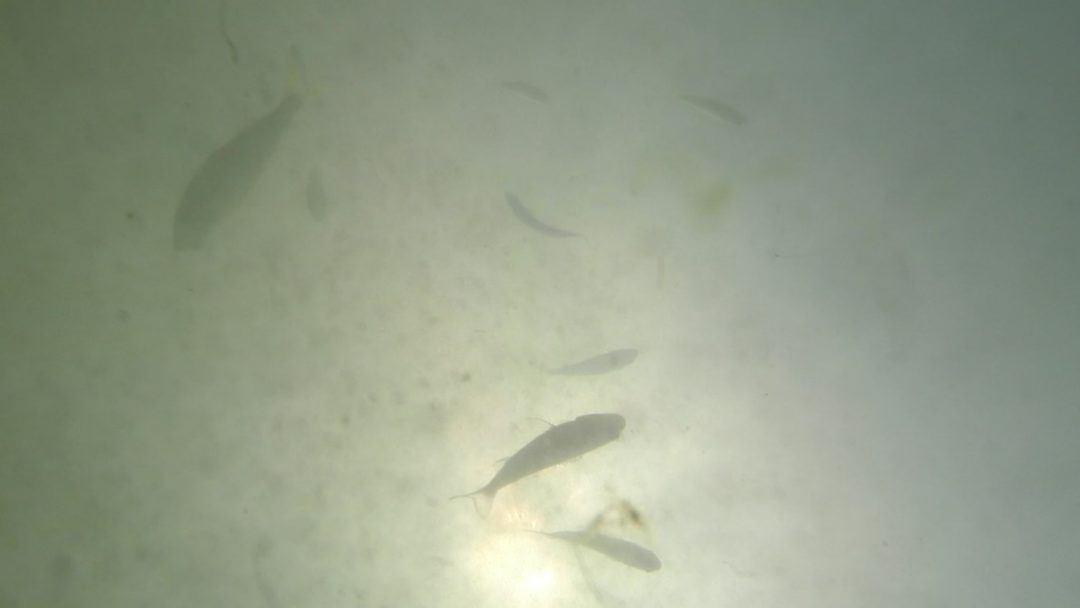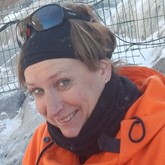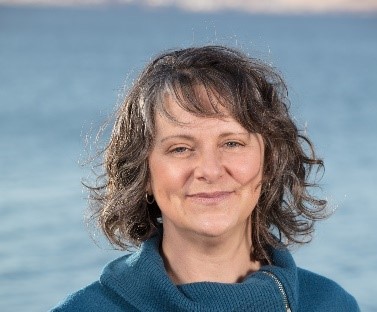Project summary:
The aims of this PhD project will be to apply a novel mix of behavioural economics and qualitative/quantitative methods to explore and expand knowledge of:
1.Domain and place-based risk and perceptions of the trade-offs relating to climate, the environment and perceived impacts related to the Blue Economy (BE). For example, there are increasing set of emerging challenges, risks and hazards associated with long term climate change and more immediate issues relating to energy security in the National Energy Market. This research component will look at Australian perceptions more broadly of the risks presented by the BE.
2.Place-based risk that relate directly to Tasmania’s BE (current and emerging) offshore industries. For example, food security and environmental impacts of aquaculture and energy security (including emerging renewables, offshore oil and gas explorations and potentially how one may colour perceptions of the other). As risk and hazard becomes closer to communities, perceived risk may be different and may require analysis from a number of perspectives including gender and culture.
3.Social Licence to Operate within communities through a place-based investigation into BE industries and how culture and demographic factors, such as age and gender may/may not play a role in decision-making outcomes that influence these core business decisions. This will be compared with more diverse BE nations and their industries.
There are well established methods for analysing risks and hazards quantitatively from an engineering or economic perspective. The emergence of new opportunities in the BE requires insights into how individuals and communities perceive different risks, policies and institutional arrangements that are potentially acceptable to manage these risks. A gender perspective and overlay will provide a more holistic perspective.

Peters and Steinberg’s radical material, ‘hypersea’ or more-than-wet ontology opens up material and inherently spatial, perspectives of the ocean itself that can be used to rethink oceans governance. In this project Miranda and Maree adopt their ontological perspective on the solid-liquid, layered and beyond-wet materiality of ocean which acts as a provocation for their interdisciplinary experiment in which they are asking: how does a radical more-than-wet ontology extend our thinking about MSP? Marine spatial planning (MSP) is used as a tool to bring the marine environment to the center of the governance imperative. Over the past 15 years, MSP has become widely adopted as an ecosystem-based approach to settling human exploitation and uses of marine places, flora and fauna, and protecting ecosystems. Application of MSP, particularly by governments, has been promulgated by the UN and the marine science community as an integrated management approach to overcoming sector-based management. Miranda and Maree suggest that despite the intentions, MSP lacks a material perspective of/from the ocean itself.
Through a speculative approach appropriated from spatial design studies and by introducing the materiality of ocean, Miranda and Maree are probing and reimagining the influential work of Ehler and Douvere (2009) “Marine Spatial Planning: A Step-by-Step Approach Toward Ecosystem-Based Management” (UNESCO). Through this project, Miranda and Maree will share their insights and questions from attempting to liquify this terrestrial based document through a critical iterative oceanic exploration into governance.
Bios of researchers

Dr. Miranda Nieboer is an affiliated researcher at the Institute for Marine and Antarctic Studies (IMAS) in spatial and cultural studies and a lecturer in Architecture. Her research interests are at the intersections of spatial studies, cultural geography, environmental humanities, and science. Miranda’s investigations include the human presence and activities in glacial and oceanic environments. Her focus is on the spatialities, materialities and mobilities of these ‘extreme’ milieus. Miranda has been researching, writing, exhibiting, and lecturing on human inhabitation in extreme environments for more than 20 years. For her PhD research ‘Antarctic Interiors’ (2020), she joined a logistical traverse towards the continental interior. This expedition allowed her to develop an embodied understanding of inhabiting the Antarctic environment.

Dr. Maree Fudge is an early career postdoctoral researcher in social research, public policy and governance (marine and oceans). Her research interests include social and political factors influencing oceans governance, integrated marine and coastal governance, ecosystem-based management, citizen and stakeholder participation, democratic legitimacy, and institutional analysis. Maree recently completed her doctoral research into the limits and constraints of participatory governance of marine based socio-ecological systems, comparing the experience in Canada and Australia. Maree brings to her ‘early career research’ a wealth of experience in governance (research, corporate, nonprofit and clinical), executive management, project management and consulting from her private sector career prior to entering academia.
My project aims to estimate the economic values held by local people for coastal and marine ecosystem (CMEs) that are predicted to arise from adopting emerging forms of sustainable fin-fish aquaculture in Tasmania. Examples of emerging forms of aquaculture include Integrated Multi-trophic Aquaculture (IMTA), Offshore and Onshore farming etc. The systematic pre-design qualitative research using expert elicitation and Q-methodology aid the researcher to design a discrete choice experiment (DCE) for monetary valuation of costal and marine ecosystem services associated with fin-fish aquaculture. This study will provide information for policy evaluation by investigating the economic values held for coastal and marine ecosystem services that are predicted to arise from adopting emerging forms of sustainable fin-fish aquaculture in Tasmania. This information can also assist operators planning for these types of aquaculture operations to understand community preferences.
This PhD project examines the plastic pollution problem in the Antarctic and Southern Ocean regions, the current governance measures for dealing with plastic pollution through the Antarctic Treaty System (ATS), and other broader global governance arrangements.
The candidate will investigate the effectiveness of the global governance systems in place that address plastic pollution. Further, they will analyse activities in the region such as tourism, research and fishing and their impact on the plastic pollution problem. The candidate will undertake empirical and qualitative research to assess whether the ATS can provide an adequate governance framework to address this issue.
PhD Student: Vaibhavi Dwivedi
Supervisors: Assoc Prof Joanna Vince (UTAS/CMS), Dr Vakeriya Komyakova (CMS), Prof Marcus Haward (CMS)
Clare’s PhD project is a multidisciplinary collaboration exploring interventions to support the mental health and wellbeing of individuals with climate change anxiety. The core aim of her project is to develop, implement and evaluate an evidence-based intervention. The findings of this project will contribute to empirical literature as well as practice in the area of climate change anxiety.
The West Coast of Africa and their marine protected areas are currently warming at four times the global average rate. The overall objective of this Ph.D. Project is to identify and prioritize cost effective climate adaptation policy options that will support effective MPA management in West Africa. This will enhance livelihoods and protect communities.
Science communication or public engagement with science (PES) has become a part of contemporary human societies. Today, PES is essential for enabling interactions between researchers, policymakers, and various publics. It is a transformative process that does not merely serve as a pure means of information exchange. Instead, it is necessary for conveying knowledge as facts and equipping the public to make versed decisions. In practice, however, it is a complex challenge influenced by socio-cultural, political, and institutional interests. This variability precludes researchers and practitioners from using a one-size-fits-all approach to engaging other societal actors on issues that might affect them, including responding to global environmental change. A fundamental gap in scholarship and the focus of this research remains on how best researchers and practitioners can engage the various publics in meaningful - debates on, for example, climate change or declining fisheries. This research, particularly, examines how interactive engagement might enable researchers to see the value in listening to, learning from, and working together with the public to find solutions to our changing global environments. In response to this gap, the research builds on current literature on boundary-spanning and public engagement, drawing on multiple theories to examine and inform how best researchers and practitioners can engage other societal actors (herein, publics) on global environmental change.
Bianca's PhD thesis is about Regional Fisheries Management Organizations (RFMOs) and their potential engagement with the United Nations Sustainable Development Goals (SDGs), especially SDG 14 - life below water. Bianca explored the potential of these organizations to support the achievement of SDG 14 and highlighted challenges but also opportunities for a potential engagement with SDG 14.
This PhD project will explore the influence attachment to Place has on climate change adaptation in coastal communities. The project will map individual place attachments along the East Coast of Tasmania towards informing climate change policy development, natural resource management and climate change communication.
Solar radiation management is a form of climate intervention that might be used at various scales to increase the planet’s albedo and thereby reduce temperature increase. Prominent proposals include marine cloud brightening and using marine based reflective agents to lessen coral bleaching on the Great Barrier Reef. Governance of research, testing and implementation of climate intervention at domestic and international levels are at a very early stage. However, over the past sixty years Australia and the United States have used law to govern weather modification activities, such as cloud seeding, aimed at increasing regional or local rainfall patterns. This PhD project will analyse the history of weather modification law in Australia and the United States to identify what lessons might be drawn for the governance, public participation and social acceptability of proposals for regional climate intervention.